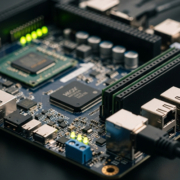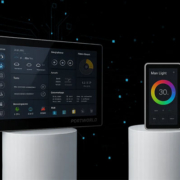Embedded Development Boards Explained: SoM vs SoC vs SBC
In the era of smart devices, industrial automation, and IoT innovation, embedded development boards are the foundation for intelligent product design. These compact platforms integrate processors, memory, and connectivity interfaces to power everything from consumer electronics to industrial control systems.
As a trusted embedded solutions provider, Portworld offers complete hardware platforms including System on Module (SoM), System on Chip (SoC), and Single Board Computers (SBC)—helping engineers and OEMs choose the right architecture for scalable, cost-effective, and reliable product development.
This article explores the differences between SoM, SoC, and SBC and helps you select the best solution for your next embedded project.
What Are Embedded Development Boards?
Embedded development boards are specialized hardware platforms used to build and test embedded systems. These boards typically include a CPU, RAM, storage, power management, and I/O interfaces, allowing developers to build smart devices, edge computing systems, and control terminals with ease.
What Is a System on Module (SoM)?
A System on Module (SoM) is a compact, modular computing platform that combines a CPU, RAM, storage, and essential I/O in a small, integrated package. SoMs are designed to be mounted onto a carrier board, offering modularity and scalability—ideal for applications with limited space, power constraints, or custom I/O needs.
Advantages of SoM:
- Compact and energy-efficient
- Modular and replaceable
- Speeds up time-to-market
- Ideal for industrial and custom hardware applications
Portworld Recommended Product
YC-P6602 – RK3566 SoM Embedded Motherboard
- Rockchip RK3566 Quad-core Cortex-A55
- Android 11 / Ubuntu / Debian / Buildroot support
- MIPI/HDMI display, Wi-Fi, Ethernet, RS485
- Customizable I/O layout, PCBA and SDK-level support
- Used in smart panels, intercom systems, control interfaces
What Is a System on Chip (SoC)?
A System on Chip (SoC) integrates the core components of a computer—CPU, GPU, memory controller, and peripherals—into a single chip. SoC-based motherboards are ultra-compact and highly efficient, often used in cost-sensitive, high-volume smart devices.
Advantages of SoC:
- Highly integrated and low cost
- Optimized for small devices
- Ideal for high-volume manufacturing
- Low power consumption
Portworld Recommended Product
P6802 – RK3568 SoC Embedded Mainboard
- Rockchip RK3568, up to 2.0GHz
- Android / Debian / Ubuntu compatible
- Dual Gigabit Ethernet, Wi-Fi 6E, PoE, MIPI-DSI, RS485
- Best for HMI, IoT gateways, smart panels
- Offers flexible customization and long-term supply
What Is a Single Board Computer (SBC)?
A Single Board Computer (SBC) is a complete computer built on one board. It includes the processor, memory, storage, and all I/O needed to run operating systems and applications directly. SBCs are widely used for rapid prototyping, education, and turnkey solutions.
Advantages of SBC:
- All-in-one solution, ready to deploy
- Developer-friendly with GPIO and rich I/O
- Low-cost for education and prototyping
- Open design and widely supported ecosystems
Portworld Recommended Product
PortPi CM3/CM4 Compatible SBC
- ARM-based board compatible with Raspberry Pi form factors
- Supports HDMI, USB, GPIO, SDIO
- Ideal for education, POS systems, home automation, and smart displays
- Custom branding, casing, and interface development available








